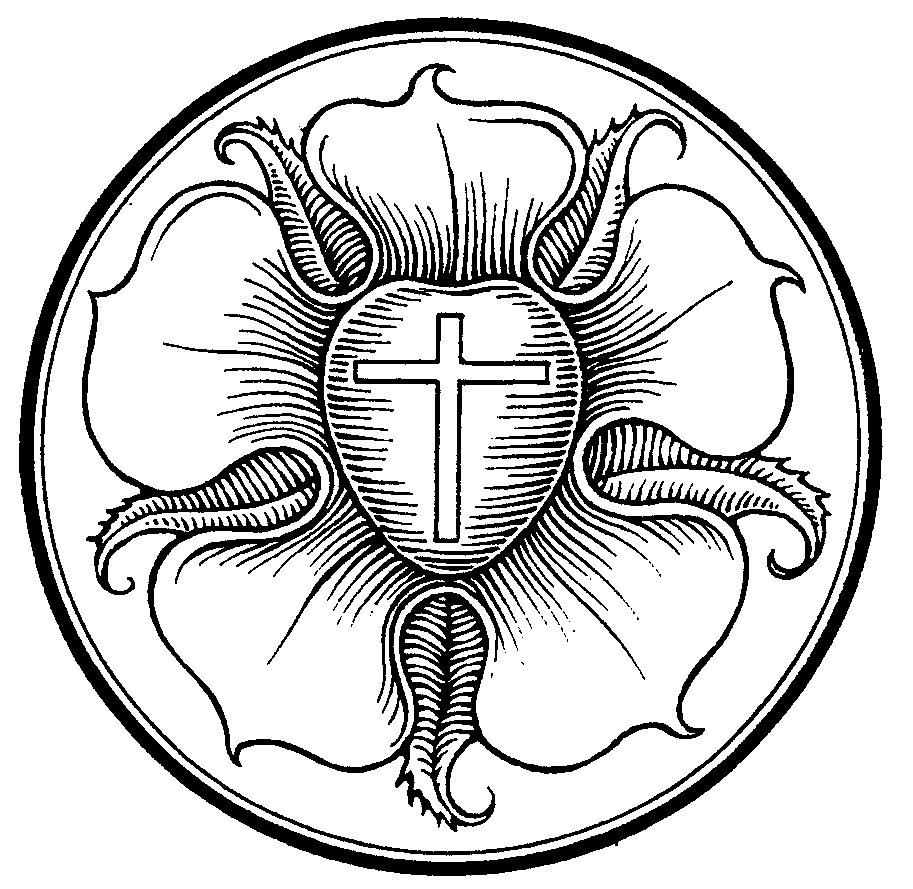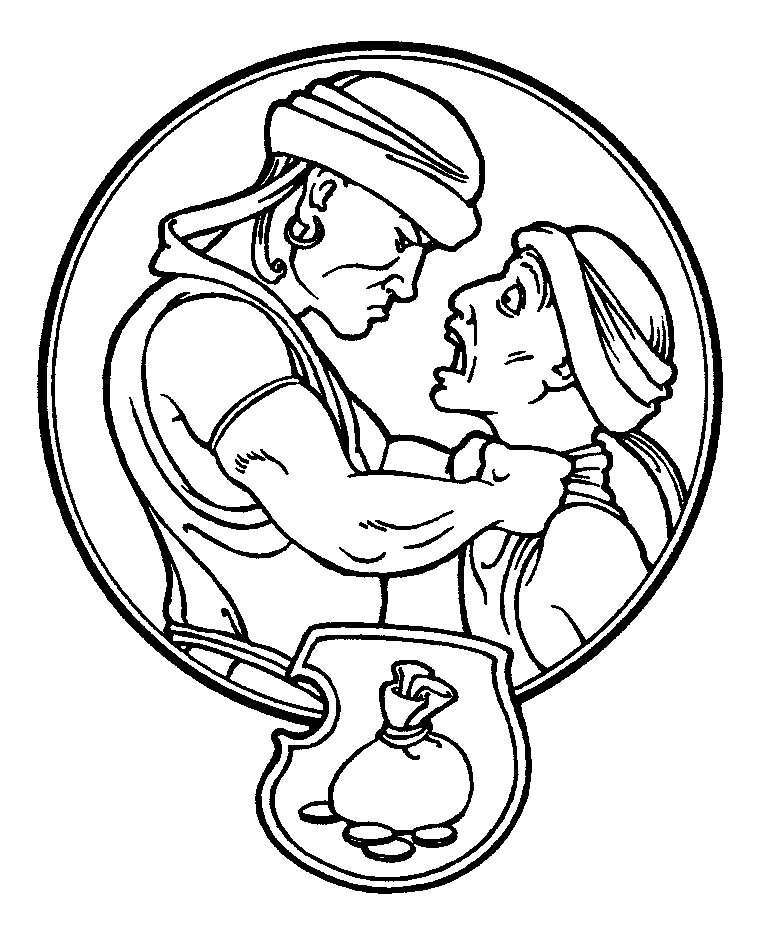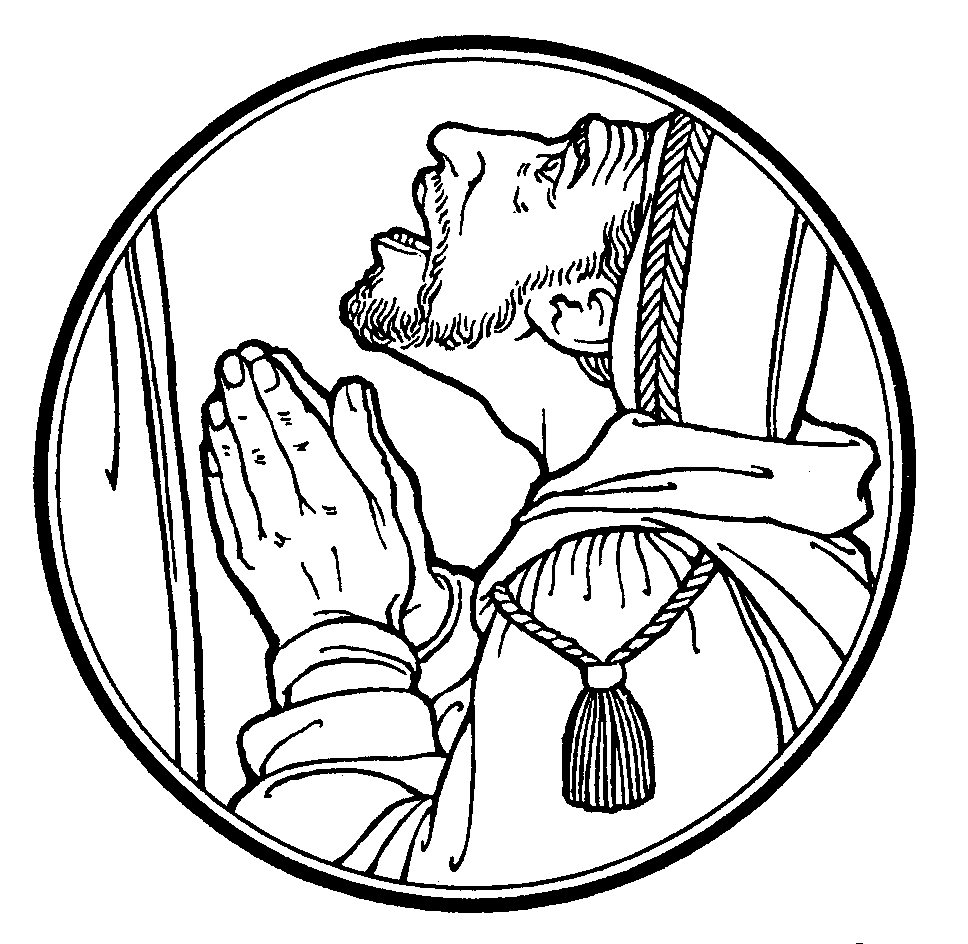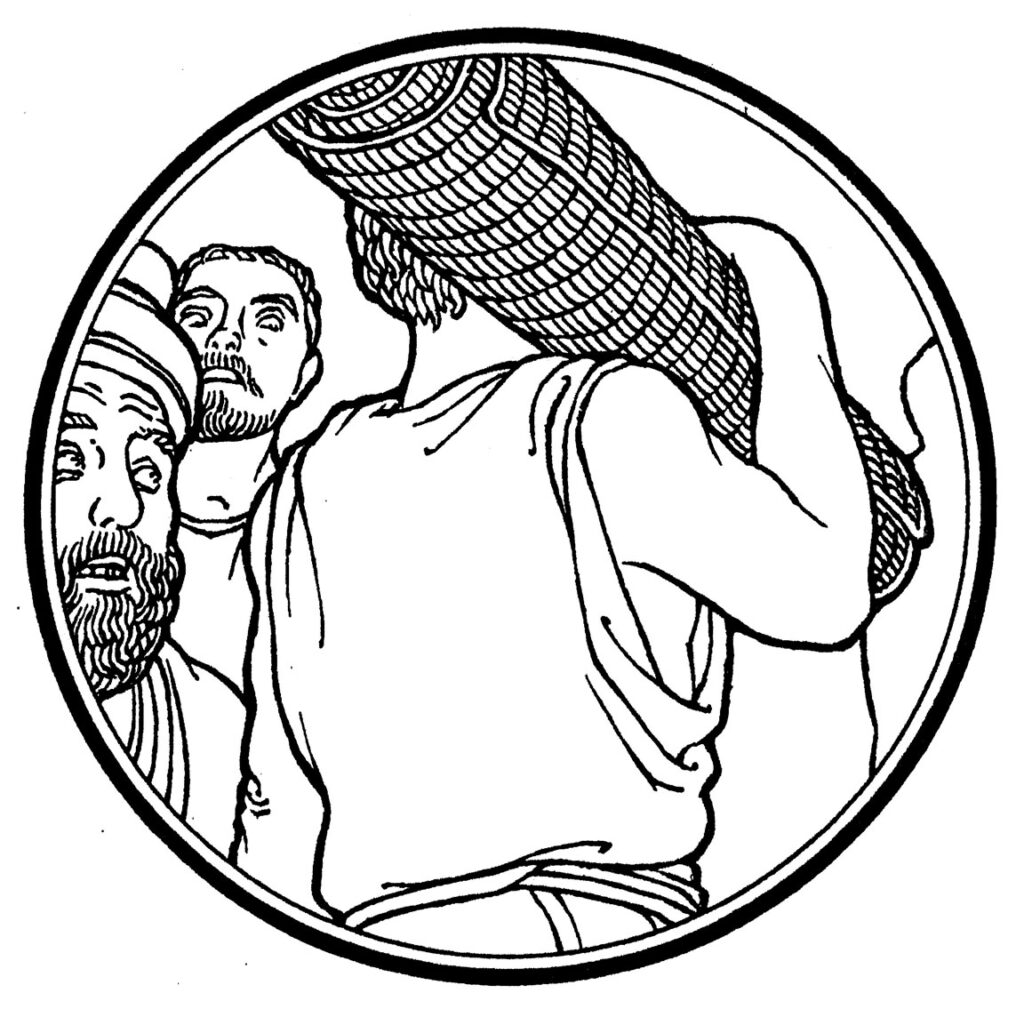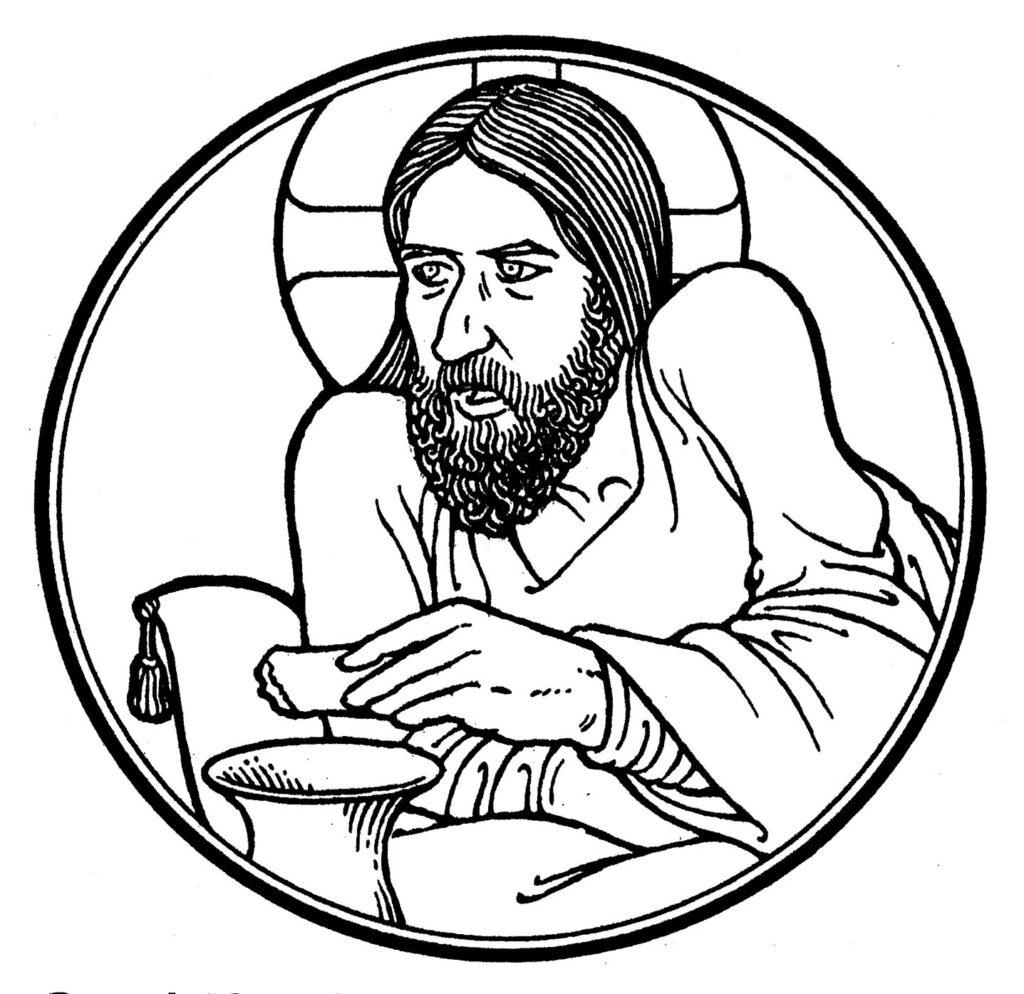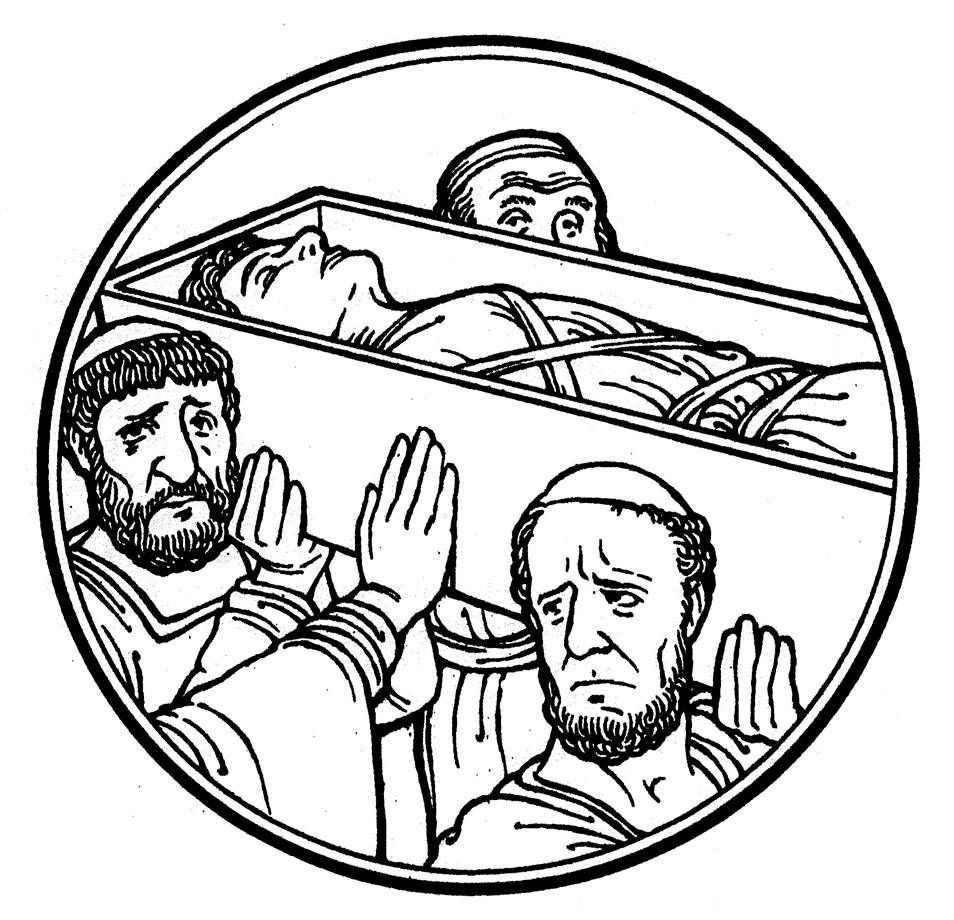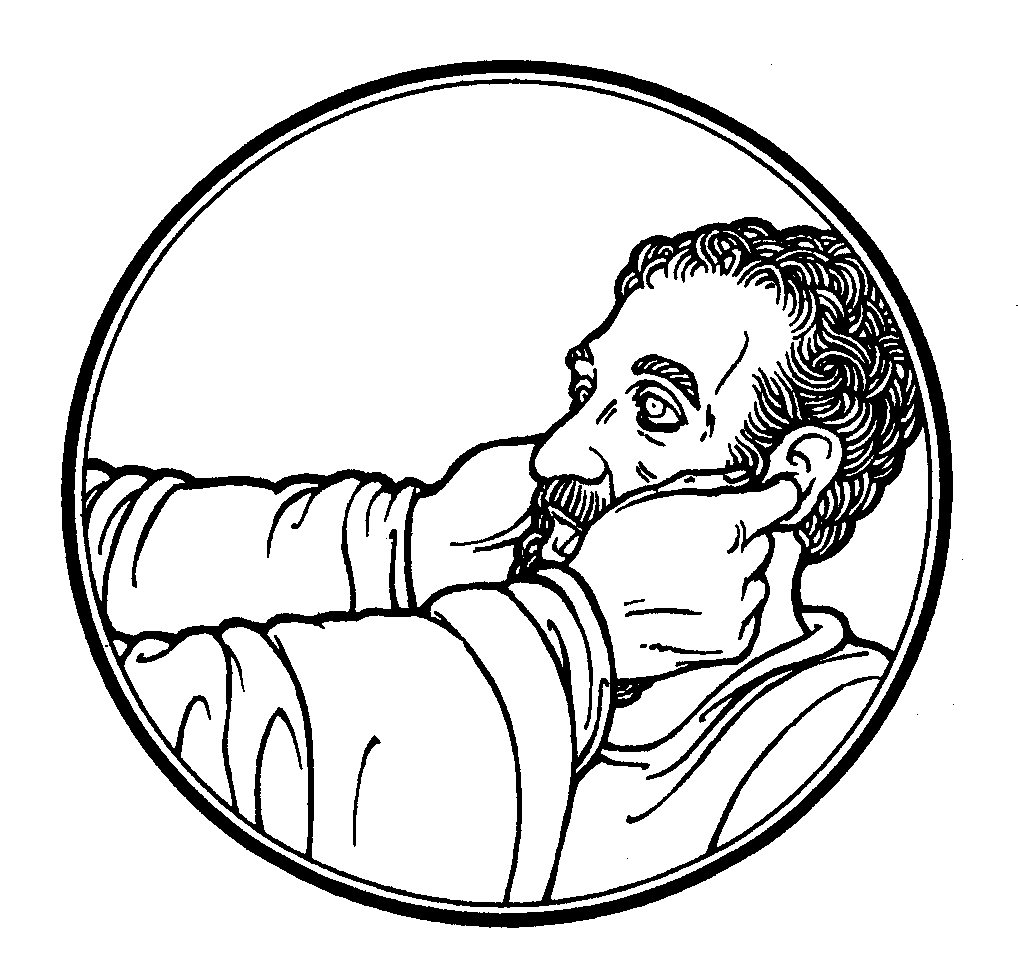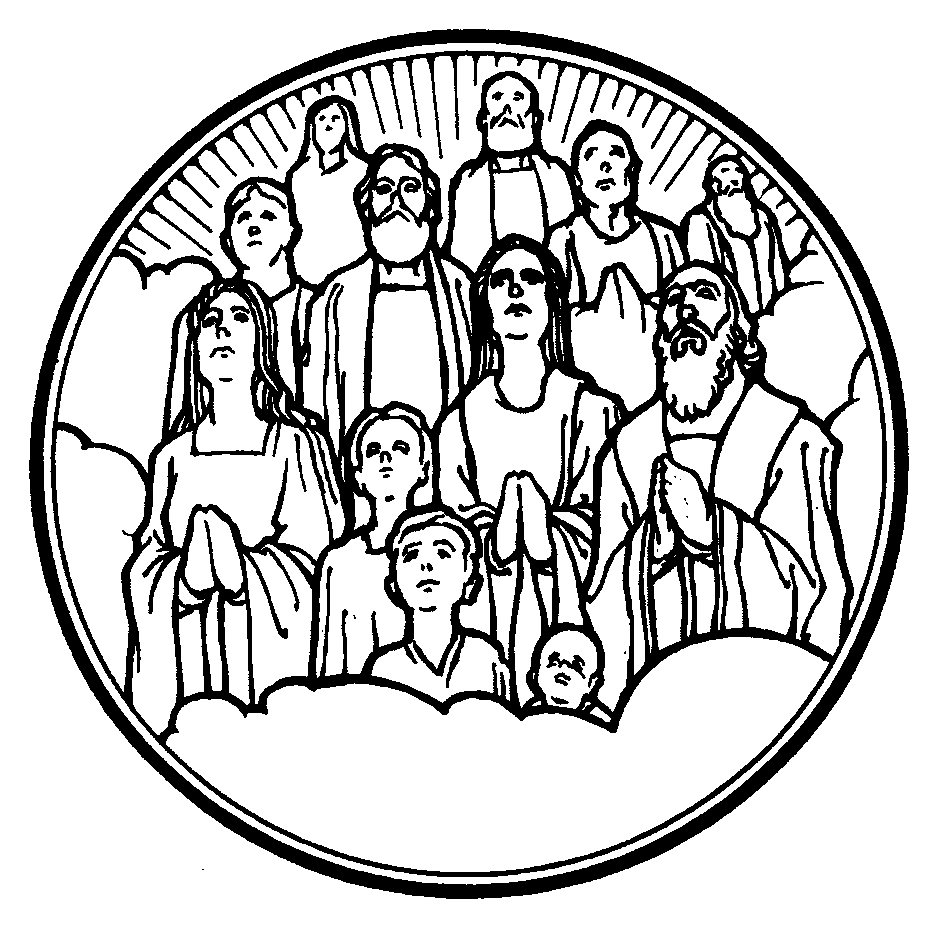
Today we celebrate a great and ancient celebration which the Church has observed for well over a thousand years. All Saints Day. We should celebrate and remember the lives of the great confessors and martyrs who were killed for the sake of their confession of Jesus Christ as well as all those believers in Christ who are now at rest from their labors. This year we remember those most recently transferred from her as members of the church militant to the church triumphant. Here in this congregation, we remember, Tom Evens, Lucille Blomquist, Sadie Zeitz. But we even as we do, we must be careful; there has always been a temptation to exaggerate the good attributes of the heroes and heroines of the faith as though they were great and wonderful on their own merits or person. It is good to remember them, but what good is it to remember them without remembering the object of their faith, that which gave them that which was good in their lives and kept them faithful in their earthly life and sustained them in their godly death?
As we look at Matthew 5 and the Beatitudes it is tempting to try to apply these qualities to the blessed memory of loved ones or of other saints who have gone before. To think of these sayings as a recipe for earning or becoming worthy to receive the gifts here promised. But if we think that somehow, we can earn salvation by our attempts at following the Law: we are to be pitied. To try to earn salvation by way of acting the part of holiness is the height of hypocrisy. As you may recall that is the literal translation of hypocrite, it is an actor or actress: one who is but acting as a character, but on the inside is someone or something altogether different. Therefore to act pious, to act poor in spirit, to act mournful, meek, merciful, etc. is really a lie, if you are merely trying to remember your lines or your character that you are playing.
How can one be saved then? How can one ever be considered “makarioi” blessed or truly happy? This, my friends is what All Saints day, and joy of life is all about. It is not about what you can do for God, it is not about how you can attain an audience with the most high, by making yourself higher or more worthy. The message of hope is first in despairing of all hope within your own worthiness, your own self-delusions of merit, by repenting and acknowledging that we have sinned and deserve nothing but wrath and punishment. This is the work of the Holy Spirit working through the Law of God to make us see that we cannot act the part, we cannot fill the role that the Law demands. We definitely and without question need a savior.
But God in His mercy and love anticipated our need and so He had already set aside His only begotten Son to come down to earth not to act a part, but to be in the flesh, our savior, Jesus the Christ. To do and be what we could not. This Divine savior is our hero who came and united Himself to human flesh so that our flesh would be redeemed in Him. He was conceived by the Holy Spirit and born of the virgin Mary putting Himself under the Law that He Himself made into flesh which He Himself had created. He then in His life was the true fulfillment of the beatitudes, the fulfillment of the Law for as we know from Scripture: Love is the fulfillment of the Law. Jesus Christ, the Father, and the Spirit truly loved and love the world enough to mourn over it, enough to show so much meekness, mercy, and purity of heart, as to receive persecution, hunger, emptying of Jesus of life so that He gave up His spirit at the cross as a payment for sins, as the Lamb of God who takes away the sin of the world, so that Peace could be made and with that peace, Sons and daughters of God could be begotten and born from above.
How? How were they begotten from above? By water and the Spirit, by the blood of the Lamb. By the Word of God changing hearts and minds from the outside in and the inside out. Through the hearing of the Word of God from outside, by the washing of the water and the blood of the Word made flesh which is the Lamb of God it covers over the sins of that person and by the power of the Holy Spirit working through that Holy baptism, He goes inside and makes the spiritually dead alive, He makes the blind see, and the deaf hear. He makes those who were enemies and persecutors of the body of Christ into confessors and martyrs. He makes sinners into saints. A Saint means that they are Holy Ones, made holy by God in Jesus Christ by faith in Him. This sainthood, is not only for those who are dead but for those who have died to self and have been made alive by faith in Jesus Christ and declared justified through Him in His merits.
Dear Friends, this All Saints Day is a celebration of a present reality. You have been baptized into Jesus Christ, you have been given the Word of forgiveness in Jesus Christ. You also have been given the white robes of righteousness in Jesus Christ. Your sins have been washed clean by the blood of the Lamb. We who realized our poorness of spirit by the Law are able to be blessed because in Jesus Christ we have been redeemed, and rescued from the punishments that we deserved. Because Jesus died for our sins, our sins can be forgiven. Because He has shown His faithfulness to His Father’s Will our unfaithfulness no longer need be charged to our account. But look now, the generations of those who have gone before us who have been redeemed continue to show us the faithfulness of God. The beatitudes show us His ongoing promises for us here on earth.
What do I mean? Many may talk about a coming time of tribulation. But we are already in it. The time of great tribulation has come upon us since the cross of Christ. A servant is not greater than His master, For what has been done to the master, will be done to the slave, as Jesus said, if they meaning the world persecuted me, they will also persecute you. The devil sees that his reign is undone in Jesus Christ, therefore those who belong to Christ by faith, the devil will try to attack and destroy if possible through the world, the flesh, twisting God’s Word, using false prophets, false practices, unionism, rationalism, emotionalism, anything he can think of to try to separate us from the love of God that is in Christ Jesus. He will use the troubles and trials of this sin sick world to weary Christians to despair.
But have courage, look to all the Saints who now are in the presence of Jesus Christ in glorious triumphant rest. All those believers who have gone before us had been sustained by God in Jesus Christ to survive the great tribulation of their earthly lives by the faith He gave them. He sustained them by His spirit working through the Word as they heard it preached, proclaimed and applied in Baptism, in the liturgy, confession and absolution, and in the building up of one another as fellow members of the body of Christ in prayer and love. He encouraged them as you can be encouraged now. If you are suffering now in any way, look to Christ, He will bear and ease your suffering. Take heart, because of Christ, there is an end to mourning, hunger, war, and so on. Already now, we and those resting from their labors are gathered around the throne of God and the Lamb here in the His Divine Service of blood and wine and body and bread, given and shed for you for the forgiveness of your sins. By His strength and faithfulness you are sustained in the true confession of Jesus Christ to remain faithful unto the end of this life to the life that is to come. All the true believers past, present and future in Jesus Christ join us in this sacramental and mysterious union. They are cheering us on as they sing praise to the Lord. Those who have died, are not truly dead, for our God is the God not of the dead but of the living. The power of death is also defeated to be overcome fully at the last when Christ shall come again with trumpet blast to raise the bodies of the dead and bring to completion all that which is promised in Jesus’ death and resurrection.
We celebrate this day, the profound gift and hope that we have and share with those who were preserved and now rest from their labors in Jesus Christ. We too even now have the Lamb in our midst, guided to the springs of living water, where the tears of this life meet their end. The joy that we have already now is summarized in the heavenly song “Salvation belongs to our God who sits on the Throne and the Lamb!” May God keep us in this joyful hope in Jesus Christ until we are transferred from this church militant to join those members of Christ’s church triumphant to live forevermore in His perfect joy. “Amen Blessing and glory and wisdom and thanksgiving and honor and power and might be to our God forever and ever! Amen”
Pr. Aaron Kangas
